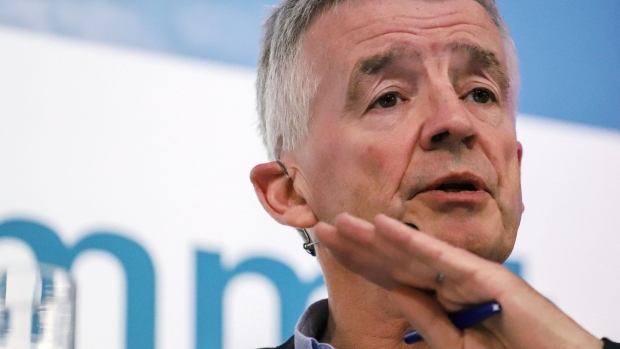Jun 4, 2022
Britons to Face More Airport Misery and Tube Strike
, Bloomberg News

(Bloomberg) --
UK travelers are bracing for further widespread disruption as airports and roads struggle to cope with a surge in people returning from Jubilee weekend getaways and London Tube workers head out on strike.
Lengthy queues are expected at airport passport controls while roads will be clogged with 19 million drivers expected to get behind the wheel over the weekend, according to the Automobile Association. Talks aimed at avoiding a strike by London’s subway station staff collapsed with a walkout looming on Monday.
“We will keep as many stations as possible open, but we expect that this strike will cause severe disruption and the closure of many Tube stations,” Transport for London said in a statement, adding commuters should avoid traveling.
Britons have been enjoying a four-day weekend for Queen Elizabeth’s platinum Jubilee, triggering an exodus to destinations including Dublin and Spanish sun-spots such as Palma de Mallorca. Many travelers will return home on Sunday, testing the capacity of road networks and airports’ ability to process arrivals.
Disruption on Sunday and Monday would be the latest headache for British travelers after the Easter holiday led to delays on the rail, road and air travel networks. For Londoners, the Tube strike means disruption will spill over to Tuesday.
“We expect the severe disruption caused by this strike to continue into the morning of Tuesday 7 June and I’m sorry for the impact this will have on people’s journeys next week,” Transport for London’s Chief Operating Officer Andy Lord said in a statement.
Having let go of staff during coronavirus lockdowns, airports and airlines have struggled to hire sufficient workers to return to full capacity. Gatwick Airport has in excess of 40% fewer direct employees than it did before the pandemic started. Easyjet Plc has shed around 10% of its workers over that period.
Ryanair Holdings Plc Chief Executive Officer Michael O’Leary called for help from British military personnel to help deal with the disruption.
“Bringing in the army, which they do at many other European airports, would, at a stroke, relieve the pressure on airport security and would mean that people have a much better experience -- not just this weekend, but for each weekend over the next three, four months,” he told ITV News.
Meanwhile, most continental European holiday destinations have returned to normal after the coronavirus pandemic, fueling a surge in demand for travel. More than 10,000 flights were expected to depart from the UK over the four-day weekend to mark the Jubilee celebrations, over 80% of pre-pandemic levels, according to data from analytics firm Cirium.
Airlines including EasyJet and IAG SA’s British Airways have asked the government to relax its immigration rules for European citizens to help them hire staff. The UK has recorded a loss of European Union nationals due to the combined impact of Brexit and the coronavirus pandemic, leaving many companies with staffing shortages.
“Our colleagues are working tirelessly to process passengers as quickly as possible and we apologize to anyone impacted by recent disruption,” Manchester Airport said in a statement posted to its website.
©2022 Bloomberg L.P.


